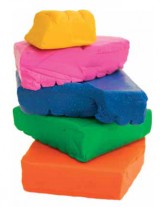Help children to understand how language is manipulated, they're less likely to become passive recipients of ideas, says Stephen Bowkett...
Recently I was in a school working with Y6 on creative writing. At one point I mentioned that a story has three parts. This usually prompts the children to say ‘the beginning, the middle and the end,’ which in turn gives me the chance to say ‘Well actually I meant the thinking time, the writing time and the looking-back time.’
On this occasion, however, thirty-odd hands went up in the air with military precision – just like a well-drilled platoon. I picked one child and she said, ‘Orientation, complication and resolution.’ I was taken aback. ‘Those are long words, what do they mean?’ I wondered. The child glanced at the teacher and said, ‘I don’t know, but Miss told us.’ We all looked at Miss and by her face she knew what was coming. ‘Those are long words Miss, what do they mean?’ I asked. To her credit she was only slightly fazed as she replied, ‘I’m not sure. They’re in the folder somewhere.’
My wife only half-jokingly accuses me of being a grumpy old man (and only half-jokingly I object!) But who can blame me when, during another school visit, I asked a child who’d written a learning objective in his book what it actually meant and he confessed, ‘I don’t know, but we’ve got to write them in.’ Or the time when I spotted, written on a whiteboard, ‘Light travels in straight lines’ and asked the class teacher how we know. ‘It’s in the book,’ was the reply I was hoping not to hear. ‘Yes buthow do we know if the book’s right?’ ‘Do you think I’ve got time to check all these facts out?’ she responded. Fair point. But what really depressed me was that none of the children had asked either. They’d simply written it down without question.
Which is one of the two points that informs most of the educational books I write:
• How far are children encouraged to actively question the information presented to them?
• How far are they asked to reflect on how language influences themselves and other people?
Literacy quite rightly remains high on the educational agenda, but if it’s regarded as the simple ability ‘to decode written and spoken language’ then it becomes degraded into what Margaret Meek calls functional or utilitarian literacy. I much prefer the insights generated by Howard Gardner’s notion of linguistic intelligence, which is the potential we have for manipulating information conveyed by words. That word ‘manipulating’ is important, because it means getting your hands on the stuff to see what shapes you can make out of it, like Play-Doh. I impress on children the idea that we own language – each child owns it as surely as Shakespeare did. The danger is when, for whatever reasons, children become passive recipients of ideas and the words used to convey them. When that happens, language owns them.
 So what’s to be done? A useful step is to teach children to ask what are called ‘meta model questions’. These are questions that explore the language in which ideas are wrapped (rather than questions about the ideas themselves). Meta model questions usually seek to draw out more information about how words are being used. Also, in the background, is the recognition that language often distorts, deletes and generalises’ not just the complexity of the world, but the so-called deep structure of thinking that lies behind the utterances we make.
So what’s to be done? A useful step is to teach children to ask what are called ‘meta model questions’. These are questions that explore the language in which ideas are wrapped (rather than questions about the ideas themselves). Meta model questions usually seek to draw out more information about how words are being used. Also, in the background, is the recognition that language often distorts, deletes and generalises’ not just the complexity of the world, but the so-called deep structure of thinking that lies behind the utterances we make.
Meta model questions routinely contain words and phases such as – exactly, precisely, in more detail, what do you mean by, further information, in what ways, how do you think A is different from B? The power of such questioning immediately becomes apparent when looking at generalisations. Supply children with the words / phrases listed above and present them with statements like:
• You’ve never had it so good.
• Things can only get better.
• Standards in many state schools are woefully low (Source: BBC news website 14/10/09).
• The rain in Spain falls mainly on the plain.
• You can lead a horse to water but you cannot make him drink.
You’ll see, I’m sure, that this one simple strategy has immediate and powerful implications for the way children can engage with scientific ideas, with the language of persuasion (advertising and politics come to mind at once – and together). Meta model questioning also provides useful stepping stones into the field of philosophical enquiry which, personally, I think should be up there as one of the core subjects alongside literacy and numeracy – sorry, linguistic and numerical intelligence.
Encouraging children to enjoy philosophical enquiry can be great fun and in recent years has grown into a movement flourishing in many British schools. I was delighted to find it happening in one I visited not long ago. I enthused to a Y5 boy ‘Oh great, so you do philosophy in this school!’ To which he replied ‘Well, it depends what you mean by ‘philosophy’ and ‘school’. And ‘you’.’ I knew then that the programme was working well.
 Another important insight is that our language is laden (or riddled, or burgeoning) with metaphors. These often attempt to create a concrete image to help explain an abstraction. Such representations may have a powerful emotional impact – again we’re back to the world of politics and advertising.
Another important insight is that our language is laden (or riddled, or burgeoning) with metaphors. These often attempt to create a concrete image to help explain an abstraction. Such representations may have a powerful emotional impact – again we’re back to the world of politics and advertising.
Looking at proverbs is a great way of helping children to understand metaphors. When they realise that ‘Make hay while the sun shines’ is about much more than just hay and sunshine, they’ve gained a useful handle (as it were) on how language works.
This quickly develops into a useful analytical tool for studying text and, more importantly, into a way for children to appreciate the beauty and power to be found in literature. In one class we collected metaphors from Shakespeare and immediately appreciated how forcefully ‘a sea of troubles’ or ‘all the world’s a stage’ conveyed their underlying ideas. Children enthusiastically made lists of Shakespeare’s metaphors in their books for later discussion. One boy wrote ‘A rose by any other name would smell as sweat’. That’s my next philosophy lesson sorted out, I thought when I spotted it.
Use language to reflect on language…
In terms of changing the questioning behaviour of children, these suggestions can prove effective:
 • Run a ‘question audit’ in your classroom. Notice who asks most of the questions (it may be you) and what kinds of questions they are (they may be largely seeking answers that you’ve already told the class).
• Run a ‘question audit’ in your classroom. Notice who asks most of the questions (it may be you) and what kinds of questions they are (they may be largely seeking answers that you’ve already told the class).
• Make a big poster which says ‘But how do we know?’ and stick it at the front of the classroom.
• Never be afraid to say, ‘I don’t know, but how can we find out?’ If you’re not afraid to admit ignorance then the children won’t be either.
• Supply every child with a thesaurus and encourage them to use it – not just so they can use a greater variety of vocabulary in heir work, but so they can notice the great richness of our language and the often subtle nuances of meaning between words.
Steve Bowkett writes fiction and poetry for children as well as educational books on writing, creativity, thinking skills and emotional intelligence. His latest books are the Countdown range published by David Fulton. He enjoys visiting schools because he loves language and, besides that, the children teach him so much!
How to be a singing school
Ace-Music
Outstanding schools: RJ Mitchell Primary
Outstanding schools
Make every lesson an experiment
Cross Curricular
